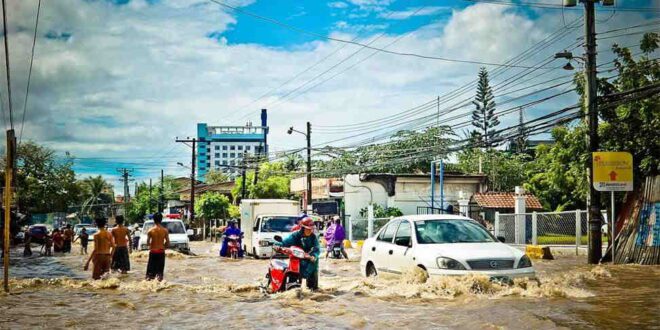Experiencing a flood near your home can be a distressing and life-altering event. The real impact of rising waters extends far beyond the immediate danger; it can affect your home, personal belongings, and overall sense of security.
Understanding the realities of a flood and how you need to respond effectively can make a significant difference in protecting your property and recovering from the aftermath.
The Immediate Impact of a Flood
Floodwaters can rise quickly, leaving little time to react. Roads become impassable, homes are inundated, and essential services may be disrupted. In addition to the immediate safety concerns, such as avoiding fast-moving water and staying clear of electrical hazards, the emotional toll of a flood can be overwhelming.
The fear of losing cherished possessions and the uncertainty of the situation can create significant stress for individuals and families.
Water Damage to Your Home
One of the most severe consequences of a flood is the water damage it can inflict on your house. Water can unknowingly seep into walls, floors, and foundations, compromising the structural integrity of your property.
Beyond the visible destruction, damp and flooded areas are a breeding ground for mold, which can pose significant health risks, like rashes and breathing issues, and further damage your home if not addressed promptly.
The aftermath of water damage can be expensive but also time-consuming to repair. Electrical systems may require inspection and rewiring, flooring and drywall often need replacement, and personal belongings may be irreparably damaged.
Acting quickly to mitigate the damage is crucial. This includes removing standing water, drying out affected areas, and assessing the extent of the harm.
The Importance of Insurance
Having the right insurance coverage is essential to managing the financial burden of water damage caused by a flood. Standard insurance policies often don’t cover flood damage, so it’s vital that you have a separate flood insurance policy.
Such coverage can provide compensation for repairs, replacements, and restoration, helping you get back on your feet.
Filing an insurance claim for water damage can be a complex process, requiring detailed documentation and an thorough understanding of your policy. Seeking professional assistance from experts in water damage claims, such as PCLA, can streamline the process and ensure that you receive the compensation you deserve.
Preparing for the Next Flood
While it may be impossible to prevent a flood, taking proactive steps can minimize its impact. Install flood barriers or sandbags to protect vulnerable entry points and elevate critical appliances and electrical systems. Regularly inspect and maintain your home’s drainage systems to reduce the risk of water pooling around your property.
Staying informed about your area’s flood risk and monitoring weather updates can also provide you with valuable time to prepare. You may even like to establish an emergency plan for your family, including evacuation routes and essential supplies.
The Psychological Effects of Flooding
The psychological effects of experiencing a flood are often overlooked but can be just as impactful as the physical damage. Many individuals report feelings of anxiety, fear, and even post-traumatic stress after living through a flood. The uncertainty of future flooding and the strain of dealing with repairs and insurance claims can contribute to long-term stress.
Seeking support from counselors or community groups can be beneficial in processing these emotions and regaining a sense of stability.
Additionally, involving family and friends in recovery efforts can provide emotional support and reduce the feeling of isolation. Open communication about the challenges you’re facing helps to build a network of support, making the recovery process feel more manageable.
Community Preparedness and Support
Flooding doesn’t just impact individual households; it often affects entire communities. Working together with neighbors to develop community-wide preparedness plans can make a significant difference.
Shared resources like sandbags, pumps, and communal storage for important items can help to mitigate the effects of a flood, while local authorities and community organizations can provide accurate information and access to emergency services during and after a flood.
Participating in community-driven initiatives, such as flood awareness campaigns or local emergency drills, can help everyone to be better prepared. Strengthening community ties can create a collective resilience, ensuring a faster and more effective recovery for all.
Conclusion
Experiencing a flood near your home is a challenging reality that requires resilience and preparedness. From the immediate risks to the long-term effects of water damage, understanding how to respond can help you to navigate this difficult time.
Make sure you have adequate insurance coverage and seek professional guidance when making a claim to ease the financial strain of recovery.
 khamush.com Lifestyle | Motivation | Poems
khamush.com Lifestyle | Motivation | Poems



